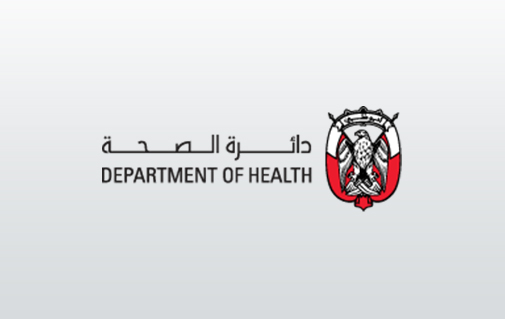News
Department of Health – Abu Dhabi develops comprehensive oral health policy

25 Jun, 2019: Department of Health—Abu Dhabi (DoH), the regulator of the healthcare sector in the Emirate of Abu Dhabi, announced today the development of a comprehensive oral health policy. The policy is aligned with the regulator’s commitment to develop an oral healthcare system that adheres to the highest levels of effectiveness and efficiency, and is accessible to all residents across the emirate.
The new policy focuses on four key aspects; developing a new system for oral healthcare services, enhancing community awareness of the importance of preventative care and oral hygiene, promoting research-based projects in the field, in addition to effective human resource planning to ensure the provision of oral healthcare services.
The implementation of the new policy came following an extensive study conducted by the DoH’s Strategy and Public Health divisions, in collaboration with a number of healthcare providers and health insurance companies in the emirate.
Dr. Omniyat Al Hajri, Director of Public Health Division at Abu Dhabi Public Health Centre which follows Department of Health said: “Oral health stands as one of the Department of Health’s top priorities. Through this new policy, we aim to improve oral health within the population of the Emirate of Abu Dhabi by focusing on those who are most susceptible to oral and dental disease and providing them with the highest quality of healthcare services.”
According to 2017 DoH statistics, more than 85,000 cases of periodontal diseases were diagnosed in adults over the age of 18 that were also Thiqa-insurance card holders, equivalent to 27 cases per 100 individuals. Approximately 134,110 cases of tooth decay were also recorded amongst the same category, equating to 48 cases per 100 individuals. Among children under the age of 18, the proportion of gum diseases recorded was 10 cases per 100 individuals, while the number of caries saw an increase, with an incidence of 44 per 100 individuals of the same category.
Al Hajri added, “DoH aims to prioritise its healthcare vision for the emirate of Abu Dhabi to ensure it remains well-aligned with the UAE’s national healthcare agenda. To that end, DoH has set clearly-defined goals and strategies for the healthcare sector and developed a roadmap to strategically enhance health facilities’ provision of oral and dental care services. In addition, DoH aims to clearly identify roles and responsibilities of the health providers, health professionals and insurance companies to ensure a seamless delivery of services and an exceptional patient experience.”
According to the World Health Organization’s (WHO) oral health report, oral and dental diseases are some of the fastest growing non-viral diseases worldwide. According to the report, poor oral hygiene, fluoride deficiency and excessive consumption of sweets as well as smoking lead to oral diseases and tooth loss. The early diagnosis of oral and dental diseases among kids and adults can prevent tooth loss, in addition to relieving the emotional and financial toll of undergoing treatments as well as generally enhancing individuals’ quality of life. Based on WHO, oral and dental diseases can be prevented by adopting healthier lifestyle and making better healthy decisions.
The new policy underscores the importance of involving all members of the community, especially those who are more susceptible to oral and dental diseases. DoH urges health facilities to keep abreast of global best practices and evidence-based findings to continue providing health services that respond to the health and cultural needs of the community.
-End-



 For an optimal experience please
For an optimal experience please